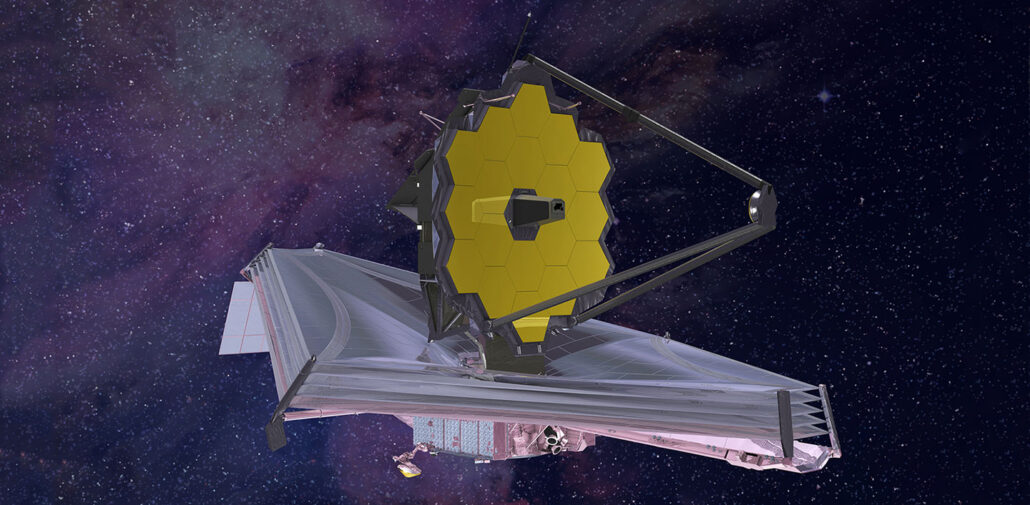Questions for ‘The long-awaited James Webb Space Telescope has a big to-do list’

This is an artist’s representation of what the unfurled James Webb Space Telescope would look like in space. It’s the biggest, most complex telescope ever launched into space.
NASA